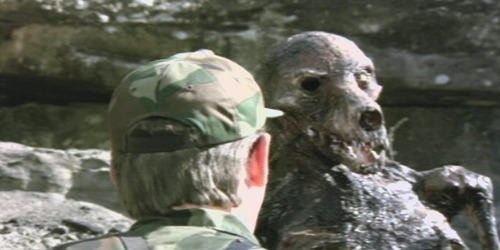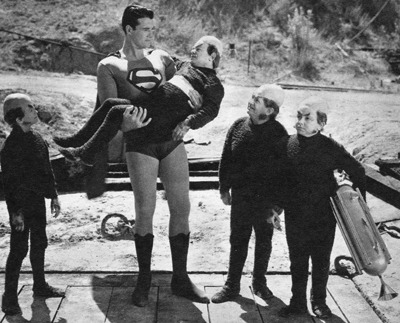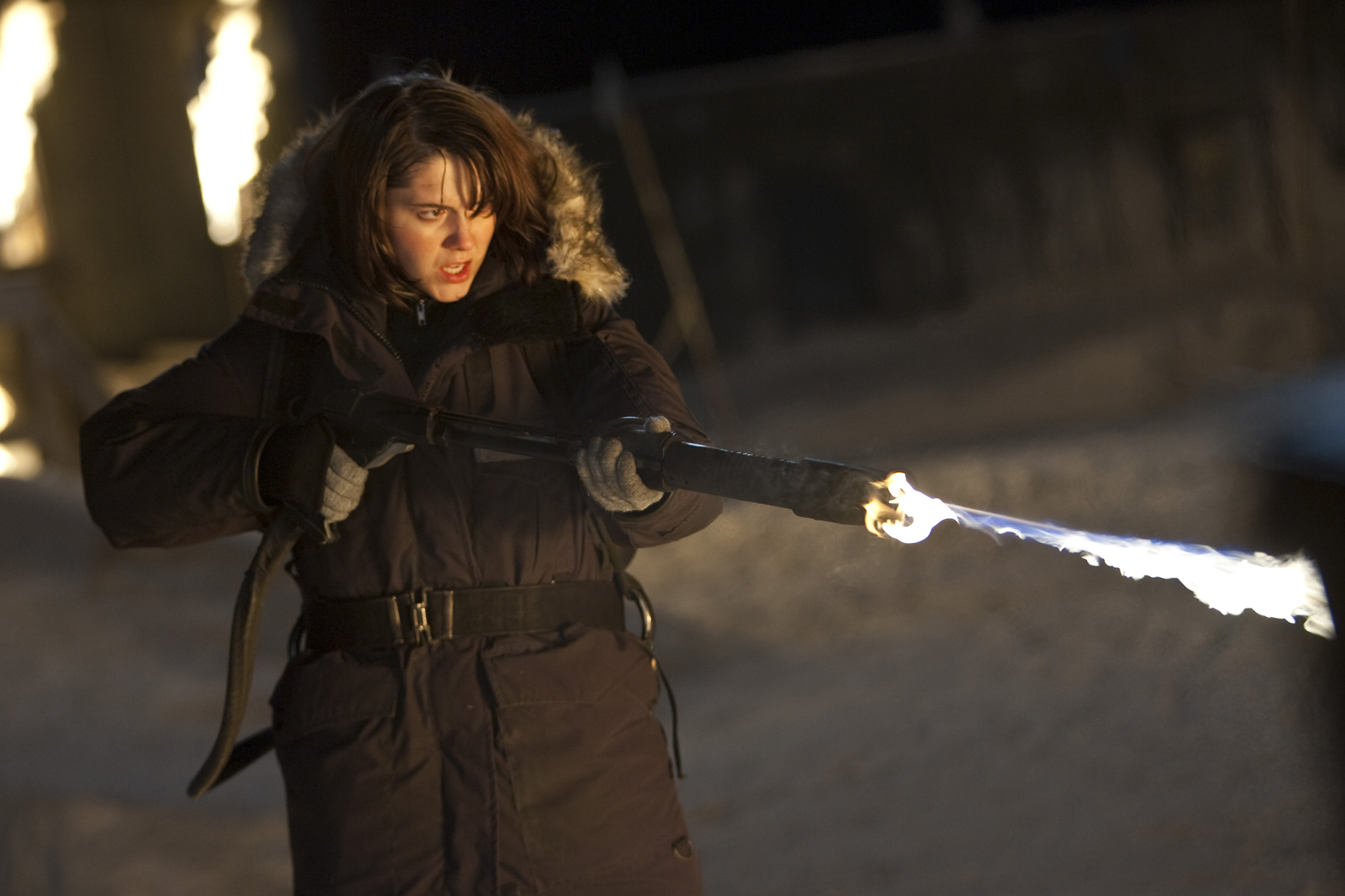Welcome to Week Two of our little journey...not as many pilots as last week, obviously, but since I never got around to viewing one of the two pilots I had intended on watching last week, I've just moved them up here. And, to make up for the noticeably shorter segment, I'll be following on whether I'll be continuing with the shows I decided to give a second chance to.
Oh, and a programming note--my VCR messed up, so I did not get to see Charlie's Angels. From what I can tell from reviews, I am not missing anything.
Enough with the administrative. Let's get to it, men...
Person of Interest: Wow...
Now this...this isn't in the CBS Crime Drama Mode. If anything, it has significant echoes of that classic Edward Woodward suspense The Equalizer--only filtered through equal parts cyberpunk and the Christopher Nolan playbook. Hell, it shouldn't be surprising given the show was created, and the pilot was written by brother Jonathan, that all the weird obsessions Nolan seem to have--voyeurism, perceptions, probability--are front and center.
 |
| The first Odd Couple style duo kicks ass... |
The concept is that in the wake of 9/11, enigmatic millionaire Finch (Michael Emerson) creates for Homeland Security 'The Machine,' a predictive protocol that is supposed to anticipate potential terrorist activity. However, Finch is haunted by how The Machine seems to predict mundane crime as well...and has hired haunted ex-federal agent Reese (Jim Caviezal) to investigate the people the Machine predicts may be a 'person of interest' in a future crime so he can act as either a guardian angel--or an avenging one.
This show moves at a terrific pace, and the strange interplay between Emerson and Caviezal is compelling...and the real great thing is that this almost works as a halfway cross between a spy flick and a super-hero series; Reece even has something of a uniform in his black shirt and blue suit. The only thing that seems like an unnecessary appendage is Taraji P. Henson, playing a cop investigating Reece; her only purpose seems to be there to advance an overarc where Reece is a person who may have done very questionable things in the past.
I was engrossed in this story from almost the start, and this one will have to really go off the rails for me to stop watching.
Pan Am: Or 'We Want Some Of That Mad Men Money, Too.' Watched because I was promised Christina Ricci in one of those too-tight 60's era stewardess uniforms, I suspected this might be a disaster from moment one because it's trying to do what Mad Men does without all the sex and political incorrectness broadcast television is thoroughly incapable of doing....
 |
| "See? We're retro! RETROOOOOO!" |
And, not surprisingly, artificiality is the order of the day, beginning with that virtual Pan Am terminal that serves as the main backdrop to the series. This series is in love with its virtual set technology...and since the CGI is sort of half-assed, especially when it comes to the helicopters and airplanes, we're always reminded that these are People Playing Dress Up. And that's what it is, because at its core this is a standard soap opera with standard soap opera storylines (someone sleeps with a man who didn't tell her he's married! Someone is involved in political intrigue! Someone has run away to escape her domineering family! Someone breaks off their engagement for mysterious reasons!) that hopes all the namechecking of early 60's stuff to convince us this is something more. Even the beatnik, politically involved character Christina Ricci plays doesn't spout any platitudes that couldn't be spouted today by some Emo college student.
Prime Time Soapers is one of my least favorite television genres. The reason Mad Men works for so many is the sense of their 60's as an alien land with different rules and mores'; visiting the world of Don Draper is no different than visiting Middle Earth in a way. This show does nothing with its setting, thinking that the setting is enough to make it unique...which is why I won't be back.
Terra Nova: Has Steven Speilberg ever had a successful television franchise? Okay, granted, they've all lasted two years or so, but that was mainly because it was in his contract. As a whole, I think most of Speilberg's bids at a television come off as cold and unappetizing, like a microwaved TV dinner you forgot about because of a phone call or something...
 |
"You damn dirty ap--DINOSAURS! I MEAN DINOSAURS--
better keep your hands off me." |
And judging from its pilot, Terra Nova is keeping with that Speilberg tradition. If anything, it comes off suspiciously like a redo of Earth II, only with the 'another planet' trope swapped out with a distant past timeline...and it bored the Hell out of me. I watched over an hour of the two-hour pilot and nothing, but nothing surprised me or intrigued me. The only thing that made me pay attention was the presence of Stephen Lang, one of the key actors from my second-favorite TV show, Crime Story, playing a character I suspect was meant to be a nod of the hat to the Planet of the Apes franchise (he's even named Taylor, for God's sake). Lang is one of those actors, like James Spader, I would watch in anything...but he's a background character and the actors we're asked to follow are, well, dull. Not the cop father, not the mother, and certainly not the three children...
(And while we're on the subject of the family...the dad is white, the mom is East Indian...and yet only the female children seems to be of mixed parentage...do casting directors not pay attention to giving us a touch of visual continuity?)
I know what you're thinking--what about the dinosaurs? Well....they're CGI dinosaurs that look, well, sorta crap. They remind me of the dinosaurs we used to see in 90's shows like Sliders in that they look kinda like dinosaurs if you squint, but can never convince you they're real. And considering that one of the mysteries they seem to be setting up--figures that the one thing Speilberg picks up from modern television tropes is overarcs and mysteries--involves a possibly sentient dinosaur species, I have a bad feeling we've got a subplot ready to collapse due to bad special effects. And the other possible subplots--Taylor's missing son, a rival, less reputable faction called 'The Sixers'--are far too sketchy at this point for me to care.
Given that I have no empathy for the character, the premise, the overarc hints or the special effects spectacle, I'm not going to be back. Not even for Stephen Lang.
How To Be A Gentlemen: I did not expect to like this show, given my loathing for The American Sitcom and the CBS Sitcom in particular...
 |
| This Odd Couple style duo did not repel me as I thought... |
But, God Help Me, I laughed. I found it amusing. Maybe not a new classic in the genre, maybe not the kind of sitcom that reaches the magic number of 100 that opens the gates up to Syndication Heaven...but I found it...fun.
A lot of it has to do with the main characters. David Hornsby's Andrew Carlson is truly something of an anomaly, a man who considers himself one of the last of the Gentlemen--and from the opening take-off on Batman, with Carlson suiting up and explaining his calling, it's obvious that Hornsby gets this character and has inhabited it thoroughly (not surprisingly, given that he created the show). He's definitely in the 'Urban Grotesque' mode that CBS likes to hand off to the flyover zombies in their sitcoms, but Hornsby manages to make Carlson human and relatable. More amazingly is the job he does on Bert Lansing, assayed by Kevin Dillion, who could have been a true monstrosity...but has heart and a desire to rise above his limited intellectual and class means. The fact that Bert decides to help Andrew out of a need to make amends for the way he mistreated him as a high schooler indicates to me that Hornsby is interested in making something more than that mix of smug anti-intellectualism, sexual smarminess and poop jokes that are CBS' stock in trade.
The main conceit is that Carlson has become a cultural dinosaur ill-equipped to function in the modern world, and that Bert is going to tutor him on being a modern man--a sort of reverse Eliza Doolittle situation. This could have been a typical anti-urban CBS sitcom, but what rises it up above the tatt of Big Bang Theory and 2 Broke Girls is the chemistry between Hornsby and Dillon and the fact that these two characters seem to have a general respect and fondness for each other. Their friendship seems genuine, and I feel these characters have a life outside of the thirty minutes of the episode...which is refreshing.
It's not that this show is perfect. For every good-to-great character (in addition to Andrew, I'd also add Dave Foley as his boss, Jerry, and Andrew's mother, Diane), there are some unrealistic grotesques, and Hornsby needs to work a little harder on giving his one-off supporting characters a bit more heft. But I'm encouraged by how much this show endeared itself to me, and I may be back for a second viewing.
 |
| sigh...sorry, Zoe...I must stop seeing you... |
Week Two Continuations:
After a second episode even more moronic than the first one, I have dropped New Girl; the show is just too stupid for words, and there's something really twisted about the idea that the formula involves Jess being so incapable of functioning in the real world that her three roomies have to step in and stick up for her....Prime Suspect continues to dance along the wire; when she's investigating things, Maria Bello is able to keep things on an even keel. But then she's back to deciding whether to put no-slip frogs or clowns down in the shower, or once more interacting with her fiance's ex-wife (whose lack of realism makes me wonder if she wandered in from a Whitney script), and the episode lurches to a total halt. Plus that stupid fucking hat--bad fashion choices do not characterization make....
Next week--I don't know if we've got any more pilots until later this month (I am interested in the dueling Fables rip-offs), but I'll keep you appraised of my Week Three Continuations.








































